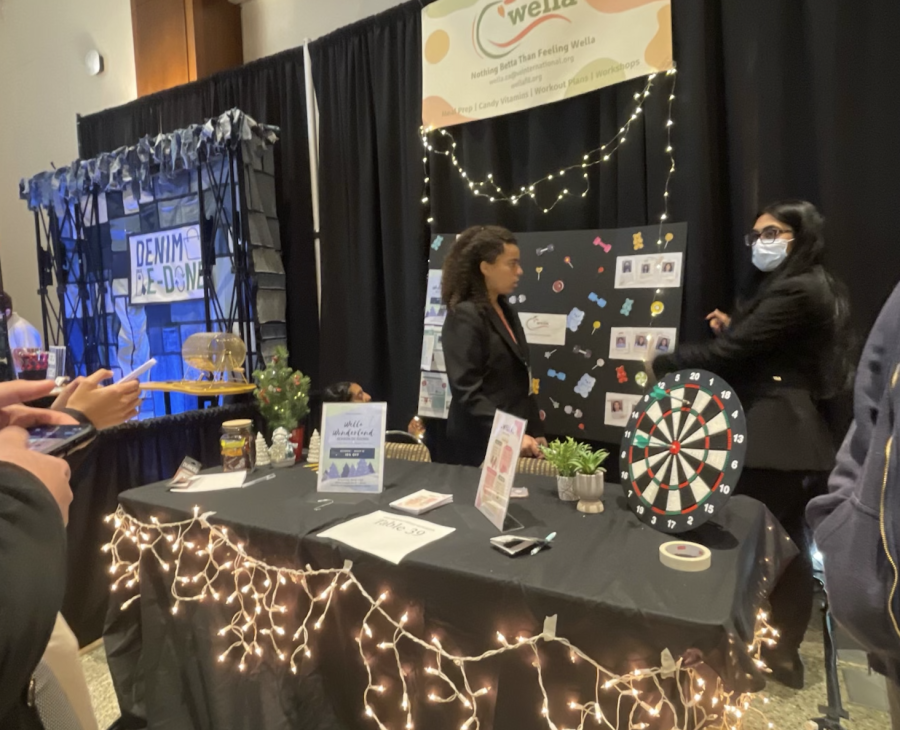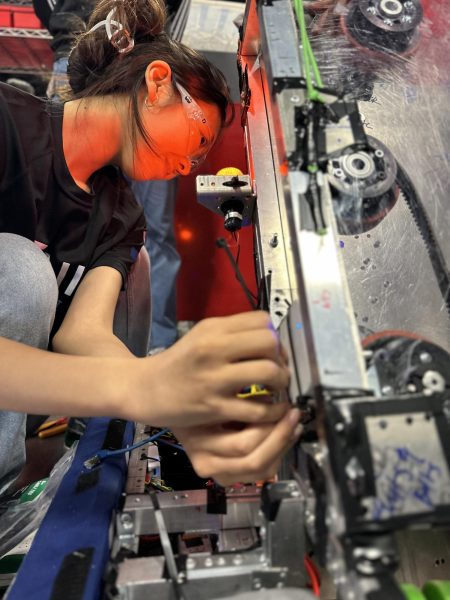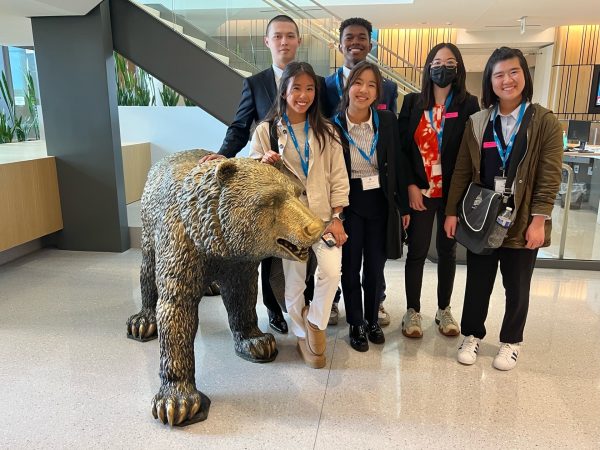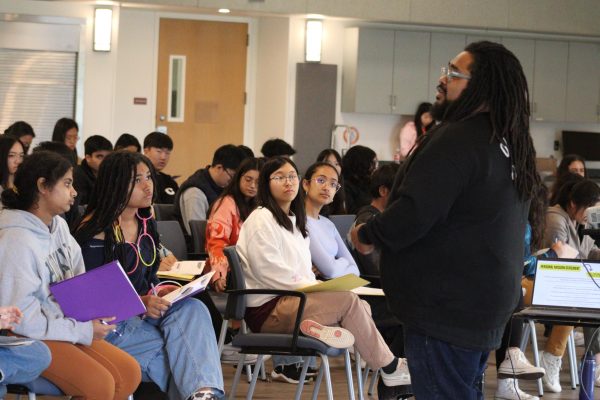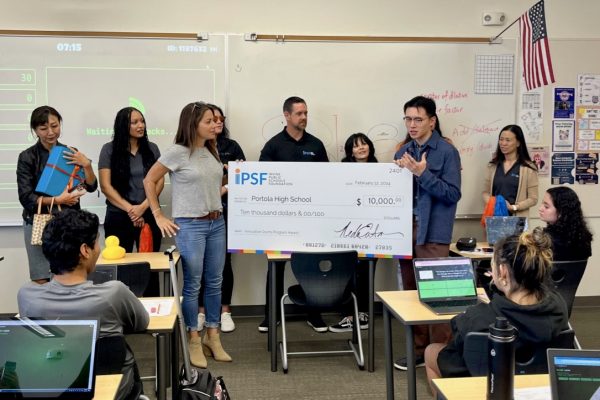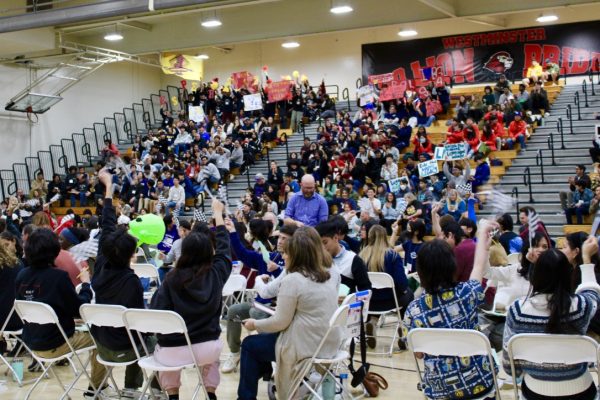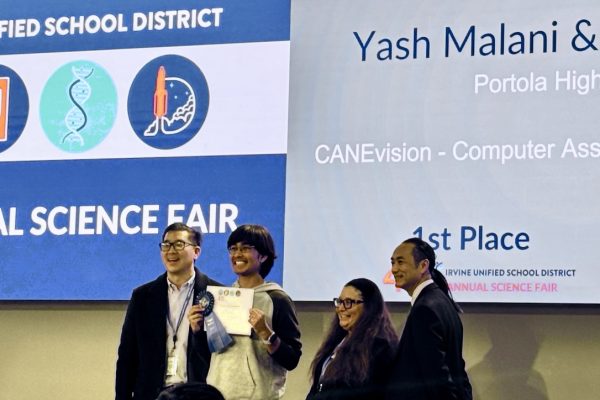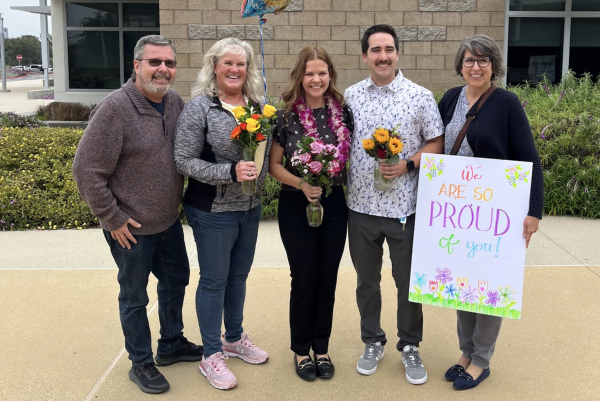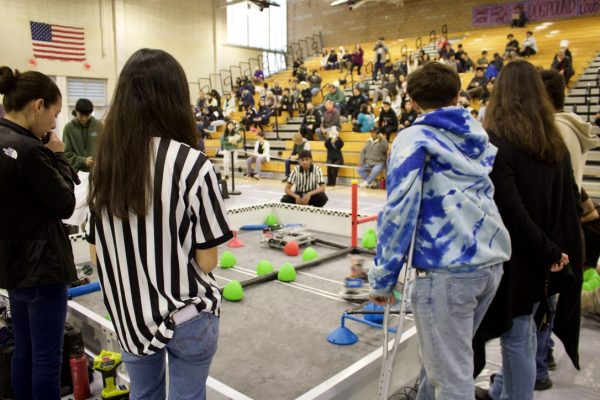Virtual Enterprise Competes and Wins at Trade Show
Junior and chief communications officer Jasmine Davis and senior and accounting representative Saanvi Mekala present their board to convince other students to buy their products for their mock company Wella, which sells health products to teenagers.
Virtual Enterprise won second place for its elevator pitch and radio commercial and third for its ecommerce website at a trade show held at San Diego State University on Dec. 2. This is the first time that Virtual Enterprise has participated in an event like a trade show, and Virtual Enterprise teacher Katherine Dillon said she is very proud of their accomplishments.
“Obviously, finals were coming up, it was very hard to prepare for all this and just getting something out there was impressive to me and winning something was even better,” Virtual Enterprise CEO and junior SJ Janolkar said. “We were elated to receive that kind of award.”
The trade show consisted of various events where they competed against seven to eight other groups.
Competitors campaigned for their mock company named Wella, which sells health products to teenagers, according to Janolkar. Wella is a company created by the class at the beginning of the year.
According to freshman and accounting representative Tristan Kim, the competition is similar to a science fair, with many different schools advertising their products/companies, and competing in business-based events.
“It definitely exceeded our expectations because compared to all the other booths, they were unbelievable and we felt very unprepared compared to them,” Kim said. “But considering we actually did win second and third was very surprising.”
In the month leading up to the competition, the team bought decorations and changed products. They also made sales pitches, posters and financial updates, according to Kim.
Each person had different assignments and the class built up to the trade show slowly, according to Janolkar. For example, the team creating the banner ad sent it to Janolkar two weeks before the competition for review and then she returned it with feedback.
According to Janolkar, the most important part was not falling back on deadlines. Team members completed their work one to two days before it was due and then edited it.
“A lot of our things happened last minute because we are so new,” Dillon said. “So really starting early and making deadlines and focusing on getting things done ahead of time, so there is more time for feedback and review would really improve their progress.”
Dillon said that the class will aim to improve its salesmanship and booth set-up skills for the next trade show.
Your donation will support the student journalists of Portola High School. Your contribution will allow us to purchase equipment and cover our annual website hosting costs.

Maitri Allani is the Media Director and a Business Manager for her second and final year of Portola Pilot. She loves to write and read, especially horrible...



